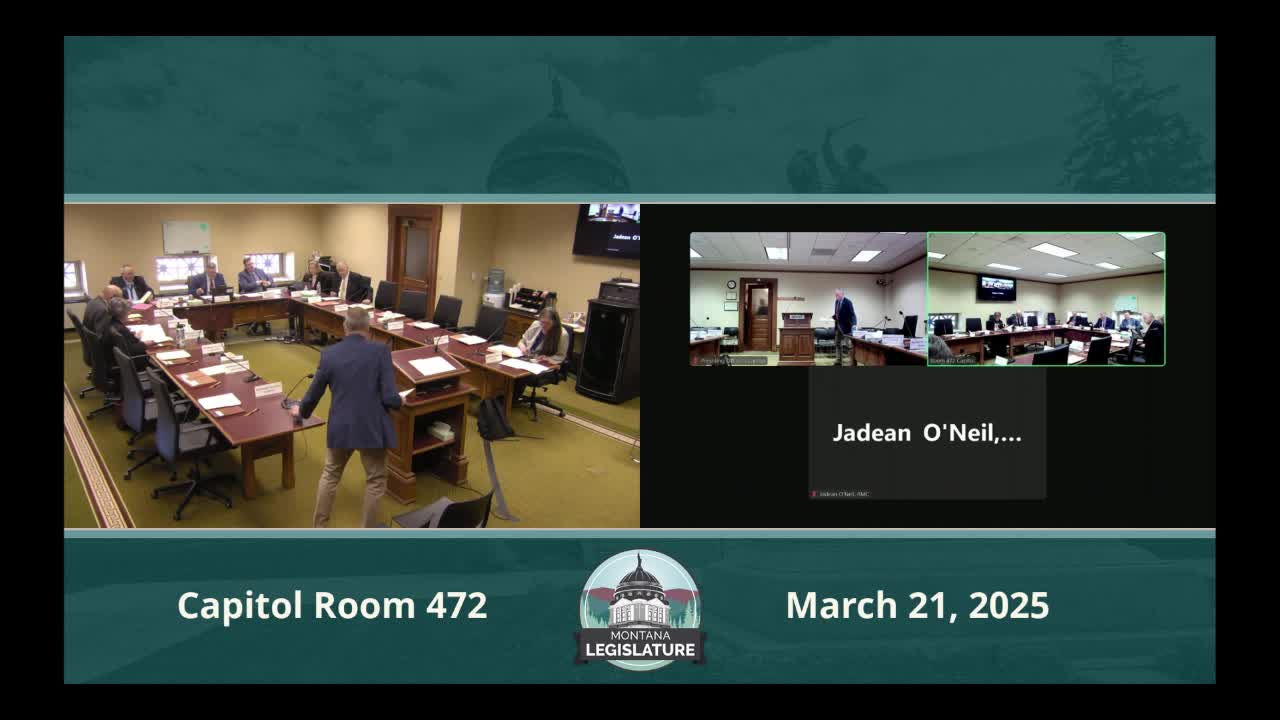Committee hears bill to clarify where and when governor may deliver vetoed bills
Get AI-powered insights, summaries, and transcripts
Subscribe
Summary
At a House Legislative Administration Committee hearing, Senator Greg Hertz introduced Senate Bill 344 to specify which officers may receive a governor's vetoed bill and what constitutes successful delivery, citing a recent late-veto incident as context. The bill drew brief discussion and no public testimony.
At a hearing of the House Legislative Administration Committee, Senator Greg Hertz introduced Senate Bill 344 to clarify the procedures for delivering a vetoed bill from the governor to the Legislature.
Senator Greg Hertz, Senate District 7 (Polson), told the committee, "Today, we need to, match the statutes with what's in our actual rules now." He said the bill only addresses delivery of a vetoed bill and message, not the process for overriding a veto.
The bill text would remove earlier, broader delivery options and specify that the governor may deliver a vetoed bill and message to either the chief clerk of the House or the secretary of the Senate. Delivery is defined as successful if "the originating house has adjourned for the day, but not for the session," or if either house is in session when the chief clerk or the secretary "physically receives a bill with the message and the receipt attached to the bill, and the message is time stamped and dated," according to the sponsor's description. "So that's all the bill does. It makes it very clear when you're gonna deliver a bill where it needs to go to, and then it needs to be time stamped and dated," Hertz said.
No proponents, opponents or informational witnesses signed up to speak in person or online. Senator Hurd asked whether the measure was related to a late veto by the governor in the prior session; Hertz said it was "somewhat related" and that the bill's purpose is to make clear when a particular vetoed bill was received and who received it.
The committee took no formal action on SB 344 during the hearing. Hertz closed by asking the committee to advance the bill to a floor carrier.
Why it matters: the bill seeks to remove ambiguity about the physical delivery and official receipt of vetoed legislation, including requiring a time stamp and receipt to establish when delivery occurred. Proponents of the change said clarity is intended to prevent procedural disputes about whether a veto was received in time to affect legislative action.
The hearing record shows limited debate: a sponsor presentation, one committee question tying the measure to a prior late veto, and no public testimony. The committee recessed after the hearing; no vote was recorded on SB 344.
Votes at the hearing: none recorded.
